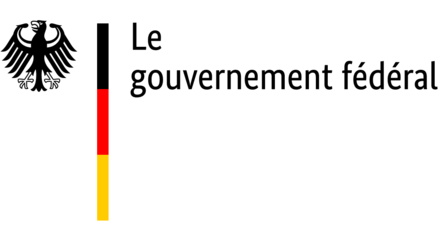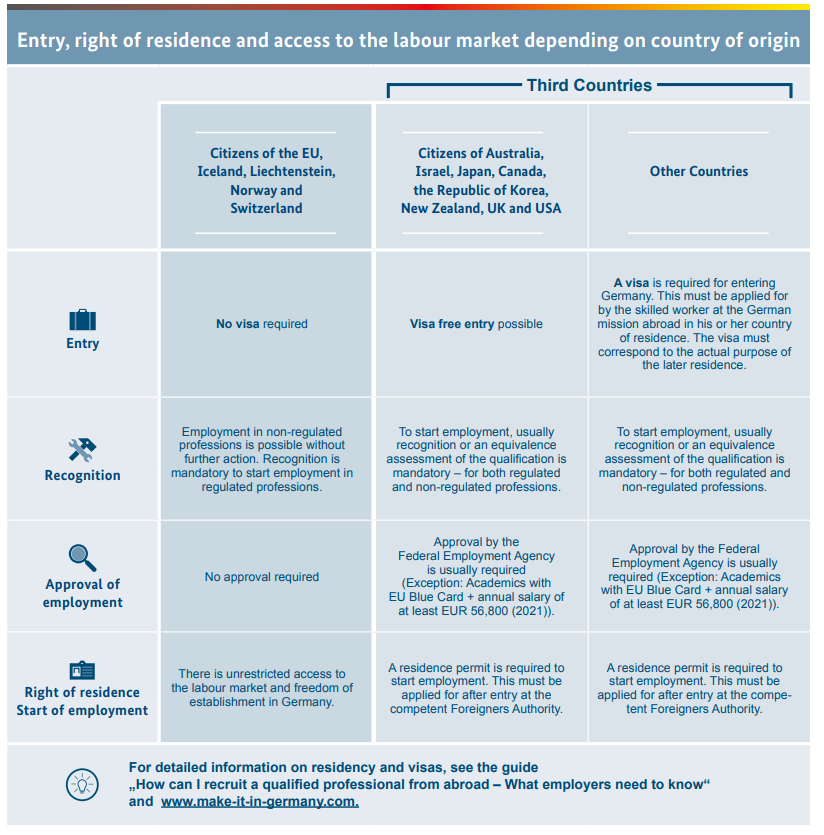Taking the legal framework into account
Before recruiting staff from abroad, employers should inform themselves about the regulations on employment and professional recognition.
Recognition of foreign qualifications:
For persons from abroad, access to the German labour market depends on their acquired qualification. If the qualification was obtained abroad, it must generally be recognised in Germany or be comparable with a German qualification. Particularly for persons from third countries (i.e. who do not come from the EU, Switzerland, Norway, Liechtenstein or Iceland), a recognition of the professional or university degree is usually required in order to obtain the entry visa. Certain occupational groups, e.g. in the medical field, require a licence to practise the profession.
Good to know: For the specific case that the professional needs to acquire additional skills in Germany so that their foreign qualification can be fully recognised, there is a special visa for the recognition of foreign professional qualifications.
Visa and residence regulations:
EU and EFTA nationals do not need a visa or special permit to enter, stay or work in Germany. According to the Freedom of Movement Act/EU, professionals from these countries are given the same rights as Germans. Persons from all other countries2 generally need a visa or residence permit to enter and work in Germany.
In order to obtain a visa for the purpose of employment, the professional must usually provide evidence of a written employment contract or a concrete job commitment when applying for a visa.
In the visa procedure, the approval of the Federal Employment Agency (BA) for employment must be obtained, which is an internal procedure between the authorities. This approval is granted
- if the qualification of the skilled worker matches the job requirements.
- if the working conditions (working hours, salary, etc.) are comparable to those of German employees.

![[Translate to english:] ©iStock_Fatcamera [Translate to english:] Gesuchte Fachkräfte](/fileadmin/_processed_/5/5/csm_iStock_Fatcamera_6d2a39db3f.jpg)
